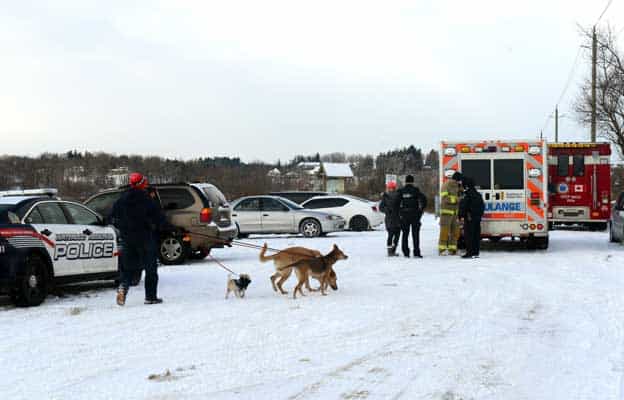The waste transfer station in Elmira should be sold to a private operator, Woolwich council agreed this week.
Moreover, the township wants the Region of Waterloo to keep the site open until a deal is finalized and control handed over to a new owner.
As it stands, service has been scaled back dramatically and the region plans to shutter the well-used facility at the end of next March.
Keeping the service going during any transition is paramount in making it economically viable for a private operator, township chief administrative officer David Brenneman told councillors meeting Tuesday night.
“What we’ve heard is … continuity of service is critical.”
Brenneman has met with regional officials as well as two potential private operators, Waste Management Canada and Plein Disposal Inc. Noting that the township is prohibited by provincial legislation from getting into the waste disposal field, by leasing the transfer station site from the region, for instance, he said the best option is for the region to declare the land as surplus and sell it to a private company.
While not overly keen on having the transfer station remain open even in private hands – it maintains curbside collection is all that’s needed in the townships – the region is looking at the option, he said.
Sale of the land would be necessary as the region is constrained by union agreements against leasing out the facility to a private operator, nor does it want to maintain responsibility for future upgrade costs, Brenneman added.
Projected long-term capital expenditures of more than $7 million were part of the rationale for regional council’s decision earlier this year to mothball all four transfer stations in the rural townships. For the Elmira facility, such costs were estimated at $2.3 million over the next decade.
On the operations side, the stations represent 10 per cent of the waste management department’s costs in the area, but just one per cent of the volume of waste and three per cent of revenues. In that light, regional council decided to save what amounts to $411,000 a year based on previous levels of service, or about $225,000 based on the every-other-Saturday schedule now in place.
Recognizing the costs at play, Brenneman said fees at the transfer station might have to rise, to perhaps as much as $10, if the region continues to operate the facility past the Mar. 31, 2015 deadline while a private business is put in place.
Along with the time the region would need to declare the land surplus and get it ready for sale, the new operator would also face regulatory hurdles from the provincial Ministry of the Environment. None of that is likely to be completed before the schedule closure of the transfer station.
Given the level of demand in Woolwich, every effort should be made to keep it open, argued Mayor Todd Cowan.
“This is one of those issues that affects everybody,” he said, deeming it almost an essential service, and certainly one that gets far more use than many of the regional services.
“It’s going to upset a lot of people across the rural townships,” he added of the impending closure of the four transfer stations.
As he’s done in previous discussions, Cowan pointed to the underused and over-budget, by some $2 million, green bin program as a potential source of savings to be applied to the transfer stations.
“Let’s look at that black hole called the green bin.”
Next Article
Man falls in water attempting to rescue dog









